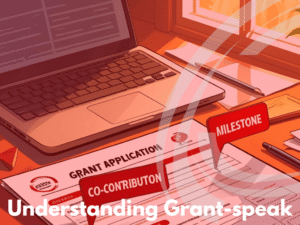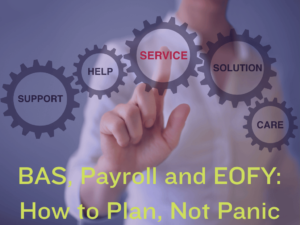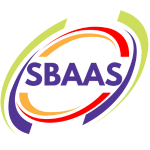Policy and Procedure Writing
SBAAS provides expert policy writing services, crafting tailored policies and procedures to ensure compliance with local, state, and federal regulations.
Policy and Procedure Writing
At SBAAS, we specialise in creating tailored policies and procedures that empower your organisation to excel in today’s complex regulatory environment. With over 25 years of experience advising both non-profit and commercial sectors, our Managing Director, who works closely with the Small Business Association of Australia and Government bodies, leads our team in developing documents that ensure compliance and drive your strategic goals forward.
Why SBAAS?
Our policies are meticulously aligned with the latest Local, State, and Federal regulations, including crucial updates such as the Closing Loopholes Act 2023. We understand the specific requirements of various sectors, ensuring that every policy is tailored to meet your organisation’s unique needs. Additionally, we can align your Environmental policies with the UN Sustainability Development Goals, helping your organisation contribute to global sustainability efforts.
Expertise Across All Facets of Operations
Our expertise spans all critical areas of your organisation’s operations, including:
- Finance: We develop comprehensive financial policies that ensure compliance with regulatory requirements while supporting your organisation’s economic health and transparency.
- Environment: We craft environmental policies that meet regulatory standards and align with the UN Sustainability Development Goals, positioning your organisation as a leader in sustainability.
- Governance: Our governance policies are designed to establish clear roles, responsibilities, and procedures, ensuring effective decision-making and accountability within your organisation.
- Human Resources: We create HR policies that foster a positive workplace culture, ensure compliance with employment laws, and support your organisation’s talent management strategy.
- Quality: Our quality policies help you maintain high standards across all operations, ensuring consistency, reliability, and continuous improvement.
- Risk: We provide risk management policies that help you identify, assess, and mitigate potential risks, protecting your organisation’s assets and reputation.
- WH&S: Our Work Health and Safety policies are designed to ensure a safe and healthy workplace in full compliance with all relevant regulations.
All our policies are provided in ISO-compatible format.
Frequently Asked Questions
Who writes policies and procedures?
Professionals with expertise in regulatory compliance, governance, and industry-specific requirements typically write policies and procedures.
These include policy writers, legal experts, HR professionals, and management consultants.
At SBAAS, for example, our managing director, with over 25 years of experience, leads a team that specialises in crafting tailored policies for both the non-profit and commercial sectors.
A professional policy writer ensures that your documents align with local, state, and federal regulations while reflecting your organisation’s strategic goals and operational needs.
This expertise is vital in creating policies that comply with legal standards and drive long-term organisational success.
What does a procedure writer do?
A procedure writer is responsible for creating clear, detailed documents that outline how specific tasks or processes should be carried out within an organisation.
These procedures are designed to ensure consistency, compliance, and efficiency. The writer collaborates closely with your organisation to understand your operational needs and the regulatory environment in which you operate.
At SBAAS, we craft ISO-compatible procedures that cover everything from work health and safety (WH&S) to quality management, ensuring that your organisation runs smoothly and meets industry standards. A well-written procedure guides employees, mitigates risks, and enhances operational efficiency.
What is a written policy and procedure?
A written policy is a formal document that outlines the principles and rules guiding decisions and behaviour within an organisation.
Procedures, on the other hand, provide detailed, step-by-step instructions on implementing these policies. Together, they ensure that your organisation operates consistently and safely and complies with relevant laws and regulations.
For instance, a financial policy might outline how expenses are approved, while the corresponding procedure would specify the steps for requesting and documenting those approvals.
At SBAAS, we create policies and procedures tailored to your organisation’s specific needs, ensuring they meet all legal requirements and support your strategic objectives.
Can anyone write a policy?
While technically anyone can write a policy, creating an effective and compliant policy requires expertise in regulatory requirements, industry standards, and organisational needs.
Poorly written policies can lead to confusion, non-compliance, and even legal repercussions.
Professional policy writers like those at SBAAS have the experience and knowledge to craft clear, comprehensive, and legally sound policies.
Our team ensures that each policy is tailored to your organisation, compliant with local, state, and federal regulations, and aligned with your strategic goals.
This expertise is essential for creating policies that protect your organisation and support its growth.
Can AI write effective policies and procedures?
AI can assist with drafting policies by generating text quickly; however, policies often require deep knowledge of specific regulatory frameworks and a detailed understanding of your organisation’s operations. AI may miss critical nuances; sometimes, it can generate inaccurate or misleading content, known as “hallucinations.”
A professional policy writer ensures your policies are compliant, accurate, and aligned with current legislation, providing the customisation AI lacks.
Is using AI for policy writing advisable?
AI can be helpful for initial drafts, but policies must meet specific regulatory and industry standards. AI may not fully understand the intricacies of laws or tailor policies to your organisation’s unique needs.
Professional policy writers ensure compliance and provide the strategic insight necessary to drive operational success, something AI cannot replicate with accuracy or context.
Can AI replace a professional policy writer?
While AI can assist in content creation, it cannot replace the expertise of a professional policy writer.
Policies and procedures must be highly specific, often requiring compliance with complex laws and industry standards.
AI can sometimes misunderstand these requirements, leading to inaccuracies.
Professional writers bring a deep understanding of legal requirements and best practices, ensuring your policies are effective and tailored to your business.
What are the risks of relying on AI for policy writing?
One of the critical risks of relying on AI for policy writing is its potential to produce inaccurate information, or “hallucinations,” which could lead to non-compliance.
Policies need to be precise, tailored, and aligned with ever-changing regulations. Professional policy writers are experts in crafting compliant, industry-specific policies, helping to avoid costly errors and ensuring your organisation remains up-to-date with legislation.
How does AI policy writing compare to using a professional policy writer?
AI can help streamline the initial drafting process, but it often lacks the necessary understanding of industry-specific regulations, legal nuances, and operational needs.
A professional policy writer provides the expertise and insight to develop compliant, robust policies that reflect your organisation’s goals. With professionals, your policies are more likely to meet all legal and operational standards, while AI might overlook important details.
Our Clients

























Our Clients - Not for Profit











Our Clients - Government






Capturing Consumer Attention – Strategic Insights for Australian Small Businesses
Discover strategies for Australian small businesses to capture consumer attention amid evolving trends effectively. Explore

One Wrong Step: Why Skipping Appropriate Policies and Procedures Can Sink Your Small Business
Australian small businesses move fast, yet too many forget that appropriate policies and procedures are

Decode Before You Commit: Navigating Grant Jargon, What to Look for Before You Apply
Grants can fuel growth, but only if you understand what you’re signing up for. Learn

The Vanity Trap: What Small Businesses Get Wrong About Social Media Metrics
Impressions aren’t impact. Likes aren’t loyalty. Discover what small businesses get wrong about social media

Stop the Scramble: BAS, Payroll and EOFY – How to Plan, Not Panic
Deadlines shouldn’t feel like danger zones. Learn how Australian SMEs can prepare for BAS, payroll








